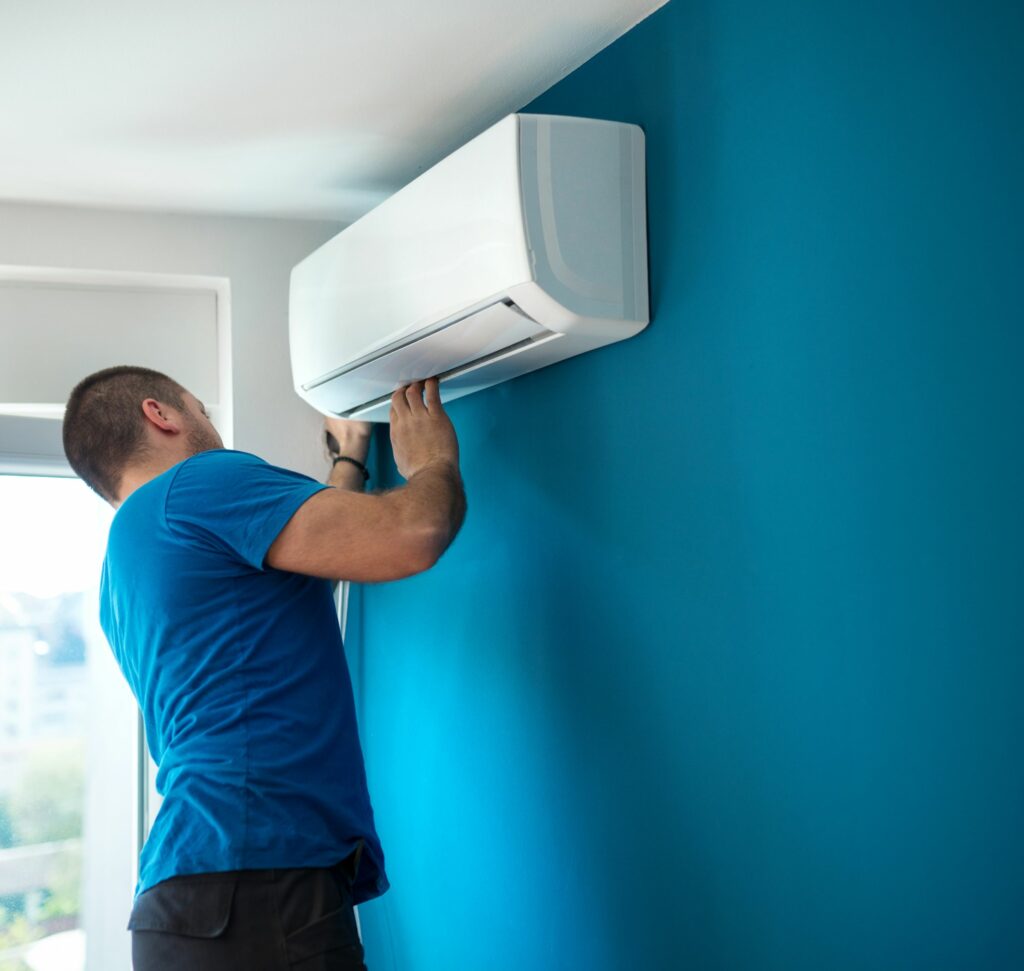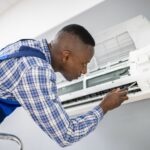Is your AC struggling to keep your home cool? Are you experiencing strange noises, weak airflow, or even unpleasant odors emanating from your air conditioning unit? Don’t worry, you’re not alone. AC issues are common, but fortunately, many of them can be resolved with some simple troubleshooting and maintenance. In this guide, we’ll explore various common AC problems and provide practical tips to help you troubleshoot and resolve them. From improving airflow to preventing freezing and optimizing energy efficiency, we’ve got you covered. Let’s dive in and get your AC back to keeping your home cool and comfortable.
AC Not Cooling: Troubleshooting Tips for a Chilled Home
Is your AC failing to cool your home, leaving you feeling hot and bothered? Don’t sweat it! Here are some troubleshooting tips to get your cooling system back on track. First, check your thermostat settings. Make sure it is set to cool and the temperature is set lower than the current room temperature. Sometimes, a simple adjustment can make all the difference.
Next, take a look at your air filter. A dirty or clogged filter can restrict airflow and reduce the cooling capacity of your AC. If it’s been a while since you last changed it, now is the time to do so. A fresh, clean filter can help improve airflow and maximize cooling efficiency. If your AC is still not cooling, check the outdoor unit. Make sure it’s free from debris, such as leaves, grass, or dirt. A blocked or dirty outdoor unit can hinder the airflow and prevent your AC from cooling effectively.
Additionally, check the air vents in your home. Make sure they are open and unobstructed. Closed or blocked vents can restrict airflow and prevent the cool air from reaching all areas of your home. If none of these troubleshooting tips solve the issue, it may be time to call a professional. A trained technician can assess your AC system and identify any underlying problems that may be causing the cooling issue.
Remember, attempting complex repairs yourself can often lead to further damage or safety hazards, so it’s best to leave it to the experts. Stay cool and comfortable by addressing the issue promptly. By following these troubleshooting tips and seeking professional help when needed, you’ll be on your way to a chilled home in no time.

Strange Noises from Your AC? Here’s How to Fix It
Is your AC making strange noises that are starting to drive you crazy? Don’t fret, as there are several common reasons why your AC might be making these peculiar sounds. By identifying the source of the noise and taking the necessary steps, you can fix the issue and restore tranquility to your home. One possible culprit is a loose or damaged fan blade.
Over time, the fan blade can become loose due to wear and tear or simply by being bumped accidentally. This can create a rattling or clattering noise as the fan spins. To fix this, turn off your AC and carefully inspect the fan blade. If you notice any looseness or damage, you may need to tighten or replace the blade. Remember to follow the manufacturer’s instructions or seek professional assistance if needed.
AC Leaking Water? Simple Steps to Stop the Drips
One of the common problems you may encounter with your AC is refrigerant leakage. If you notice water dripping from your air conditioning unit, it’s important to take action promptly to prevent further damage. Here are some simple steps you can follow to stop the drips and ensure that your AC is running smoothly.
Firstly, check the condensate drain line for any clogs or blockages. Over time, dirt, dust, and debris can accumulate in the drain line, restricting the flow of water. Use a vacuum or a long, flexible brush to remove any obstructions from the drain line. This will allow the water to drain properly and prevent it from pooling inside the unit.
Secondly, inspect the drain pan for cracks or damage. The drain pan is responsible for collecting the condensation that forms as your AC cools the air. If the pan is damaged, water can leak out and cause further problems. If you find any cracks or leaks, you can try patching them up temporarily with epoxy or sealant. However, it’s best to replace the drain pan to ensure a long-term solution.
By following these simple steps, you can stop the drips and prevent further water damage to your AC unit. It’s always a good idea to regularly maintain your AC to avoid any potential issues. Remember, if the problem persists or if you are unsure of what to do, it’s best to call a professional HVAC technician to assess and fix the problem.
AC Blowing Weak Air? Quick Fixes to Improve Airflow
Is your AC blowing weak air? Don’t sweat it – there are a few quick fixes you can try to improve the airflow and get your home feeling cooler again. One common issue that can cause weak air is a dirty air filter. Over time, the filter can become clogged with dust and debris, restricting the airflow. The solution? Simply replace the filter with a new one. It’s a quick and affordable fix that can make a big difference in the performance of your AC.
Another possible cause of weak airflow is a blocked or obstructed air vent. Take a look around your home and make sure all the vents are open and unobstructed. Move any furniture or objects that may be blocking the airflow and ensure that the vents are clear of dust and dirt. This simple step can help to improve the airflow and ensure that cool air can circulate freely throughout your home. Remember, these are just a couple of quick fixes to try if your AC is blowing weak air. If these solutions don’t resolve the issue, it may be time to call in a professional for further inspection and repair.
Say Goodbye to High Energy Bills: Easy Ways to Optimize AC Efficiency
Optimizing the energy efficiency of your AC can lead to significant savings on your monthly bills while keeping your home cool and comfortable. There are several easy ways to achieve this without compromising on performance.
One key factor to consider is the size of your AC unit. A unit that is too large for your space will cycle on and off frequently, wasting energy. On the other hand, a unit that is too small will struggle to cool your home effectively. It’s important to choose the right size AC for your specific needs. Consulting with a professional can help determine the appropriate size for your space.
Another way to optimize AC efficiency is by maintaining regular cleaning and maintenance. Dirty air filters can restrict airflow and make your AC work harder, leading to reduced efficiency. Make sure to clean or replace the filters regularly to keep your AC running smoothly.
Additionally, it’s essential to schedule professional maintenance at least once a year to ensure that all components are in good working condition. By implementing these simple steps, you can say goodbye to high energy bills and enjoy a well-functioning AC system that keeps your home cool and your wallet happy. Consult with a professional to determine the best strategies for optimizing your AC efficiency based on your specific needs and circumstances.
Dealing with AC Odors? Budget-Friendly Solutions for Fresher Air
Is your air conditioning unit emitting unpleasant odors? Don’t panic! There are several budget-friendly solutions to help you enjoy fresher air in your home. Understanding the common causes of AC odors is the first step in tackling this issue.
One of the most common reasons for AC odors is mold and mildew growth within the unit. The moist environment created by the cooling process can provide the perfect breeding ground for these unwanted guests. To combat this, regular cleaning and maintenance are essential. Ensure that you clean or replace the air filters frequently, as dirty filters can contribute to the spread of odors.
Additionally, consider using an antimicrobial cleaner or a solution of vinegar and water to clean the condensate drain line and coils. By addressing the root cause of the odors, you can enjoy a fresher and more pleasant-smelling indoor environment.
AC Freezing Up? Tips to Prevent and Resolve Icy Issues
When your AC starts freezing up, it can be a frustrating experience. Not only does it disrupt the cooling process, but it can also cause damage to your system if not addressed promptly. The most common cause of an AC freezing up is a lack of proper airflow. When there is restricted airflow, the moisture in the air condenses on the evaporator coil and freezes, forming ice. To prevent this from happening, make sure to regularly clean or replace your air filter. A clogged filter can obstruct airflow and lead to icing.
Additionally, check if there are any obstructions near the indoor or outdoor unit that may be impeding proper airflow. Removing any debris or objects around the unit can help prevent freezing issues. Lastly, it is important to have regular maintenance check-ups by a professional to ensure that the system is functioning at its optimal level and to catch any potential problems before they escalate. By following these tips, you can prevent and resolve icy issues with your AC, ensuring a comfortable and efficient cooling experience. Stay tuned for more tips on how to keep your AC functioning smoothly and effectively.
Keep Your AC Running With Our Help
Ready to tackle your AC issues and enjoy a cooler, more comfortable home? Remember, regular maintenance and prompt attention to any problems are key to keeping your AC running smoothly. If you’re unsure or need assistance with troubleshooting, don’t hesitate to reach out to our team at AC Doctor & Air Duct Cleaning so contact us today.

